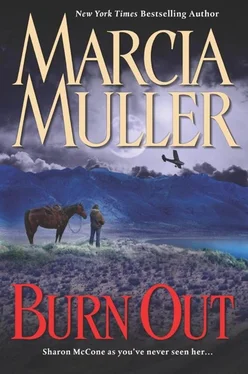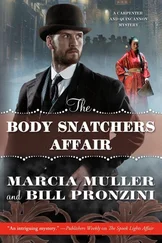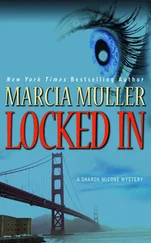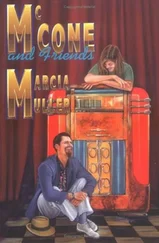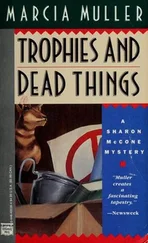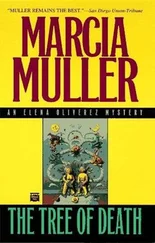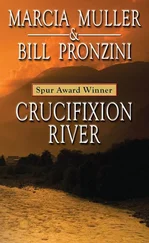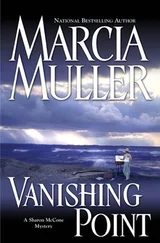Amos caught me looking at it and said, “Me. Down at Miramar before we shipped out for ’Nam on the Enterprise . December second, 1965.”
“You fly a lot of missions?”
“Yeah. I was one of the lucky ones: I lived to tell about them. A lot of my buddies didn’t.”
“My father was a Navy man-NCO. In fact, we lived in San Diego and could hear the planes out of Miramar.” The sonic boom from one had cracked our swimming pool so badly that my parents had filled it with dirt and turned it into a vegetable garden.
Amos nodded absently, sipped more ginger ale. “Wasn’t a private jet.”
“What…? Oh, you mean at Rattlesnake Ranch.”
“That’s what you’re asking about, isn’t it? That jet, I don’t even have to see it approach the ranch; I can hear it. You wouldn’t think my hearing could be so keen after all these years around aircraft, but it is. No, that day I was standing in the door trying to work myself up to cutting the grass alongside the runway when this Cessna 152 flew right over the field. Damned low, and the pilot didn’t even announce himself to traffic. UNICOM was dead silent. I watched the plane make its descent at the ranch.”
“You get the plane’s number?”
“I did. Was going to report it to the FAA, but”-he shrugged-“things get away from me these days.” His eyes strayed to the photograph on the opposite wall. “It’s hard to admit that you’re not as energetic or clearheaded as you used to be. But it’s a fact, you can’t challenge it.”
“It was clearheaded to take down the Cessna’s number. You still have it?”
“Somewhere.” He sifted through the items scattered on the table, came up with a blue Post-it note. He was more clearheaded than he gave himself credit for; I was willing to bet he knew where every item in that clutter was. “Yours,” he said, handing it to me. “How about we have another ginger ale?”
“Sure,” I said, surprised at how mellow he’d become toward me. I popped two more tabs, passed a can over to him.
“How’d you get interested in flying?” he asked.
“Ripinsky. I’d been at the controls of a plane a few times, years before I met him, when I was dating a Navy pilot stationed at Alameda, but I didn’t enjoy it all that much. He was a hotdog pilot and liked to scare people.”
“Guy was an asshole then. Ripinsky breaks a lot of rules, but never at the expense of a novice passenger.”
“That’s true. And he’s a terrific pilot. Once I got comfortable flying with him, I asked him to teach me-he’s got his CFI, you know. But he didn’t think it would be good for the relationship, so he found me an instructor near San Francisco. And I’ve been happily flying ever since.”
Amos pursed his lips; I suspected he was trying not to say something. But the desire to speak won out: “You been flying happily and beautifully. Nobody around here-male or female-makes the kind of landings and takeoffs you do.”
I was genuinely touched, but I said lightly, “Not even Ripinsky?”
“Not even him. And I’m not bad-mouthing your husband, because he admits you’re the better pilot.”
Somehow I-and Canada Dry-had won grouchy Amos Hinsdale over. I’d been promoted from “lady pilot” to just plain “pilot”!
From the FAA’s Internet site, I found the Cessna whose number Hinsdale had noted down belonged to a flight service in Fresno. I called the service, got a machine. By then it was nearly eleven. Hy hadn’t called today. No one had, except for Patrick and Ted with terse reports they’d left on the machine. Hy’s silence didn’t bother me; I could sense him urging me on.
I flipped the TV on to the national news. The recent happenings in Mono County had become a major story. Apparently they had been for nearly two days, when the media smelled links between the murders. Come to think of it, I’d seen a CBS van in town the previous afternoon, but had been too distracted to take much notice. Tonight’s follow-up said the sheriff’s department was searching for both Bud Smith’s boat trailer and the keys to his Forester, so far with little success.
After watching the weather report-more snow-I poured myself a glass of wine and sat down to think.
Trevor Hanover-wherever he was-would be monitoring the news. He’d be aware of the interest the cases had generated. But would he suspect someone had also linked the events to him?
Maybe, maybe not.
I began to construct my view of what had happened.
Hanover had been intimidated by his brother Bud’s threat to tell the truth about Miri’s rape to the Nevada authorities. He’d retained the attorney for Hayley and probably put the half million dollars he’d offered Bud in trust. When Hayley returned to Vernon and took out the life-insurance policy, Bud gave her her mother’s letter. After reading it, she asked Bud to set up a meeting with her father; again the threat hanging over Hanover had worked, and he’d agreed. Perhaps he’d expected some kind of trouble, since he’d flown his jet to Fresno and rented a small plane that wouldn’t be recognized as belonging to him.
Still, I couldn’t believe even as cold and calculating a man as Hanover was reputed to be would have planned his own daughter’s murder.
An accident, then. Hanover refusing Hayley’s demands for money and recognition as his child. Hayley taking out Boz’s.32. A struggle, and the gun going off and killing Hayley. Happens all the time when irresponsible people untrained in the use of firearms have access to them.
Hanover left the scene, taking the gun with him. And someone saw him leaving…
Tom Mathers. T.C. had told me her husband had a woman friend in that trailer park-a woman friend who’d left to care for her supposedly ailing mother shortly after Hy and I found Tom’s body. Mathers could have heard the shot and followed Hanover. After that, he did some checking and made a phone call to the ranch, thinking he had a big deal going.
Blackmail-the fool’s crime.
From this point on, my thinking became more speculative.
Bud Smith knew as soon as he heard the news of Hayley’s death that his brother had killed her, but for some reason he didn’t go to the authorities. Lack of proof? Shock? The habit of lifelong loyalty and protectiveness? The hope he could persuade Davey to turn himself in? Family ties could be that strong: I’d seen it over and over again, in my own life and those of others.
Did Bud try to talk with his brother, but found himself unable to because Hanover had forted himself up at the ranch?
No way to tell.
On November second, a meeting between Hanover and Mathers at the lava fields. More demands on Hanover. His financial empire is crumbling, his wife has left him, he’s killed his daughter, and now this. He snaps, and when Mathers turns away from him, he shoots him in the back with Sheppard’s.32.
Premeditated? Yes. Maybe he wasn’t expecting the meeting to turn out that way, but the possibility must have been in the back of his mind, or he wouldn’t have brought along the gun.
Now he’s panicked. He’s in the lava fields with a dead man and two vehicles. He doesn’t want to leave the body there-the proximity to his ranch. He can put the body in its owner’s truck, drive it to some remote place, and dispose of it, but then how the hell does he get back?
The answer is the same as it always has been with the former Davey Smith: he calls on his big brother Bud for help.
Bud comes to the ranch in response to Davey’s plea, not even taking time to unhitch his boat trailer from the Forester. But when Davey tells him what he wants done, Bud flat-out refuses. Davey’s killed his own daughter as well as Tom Mathers, and Bud confronts him with the facts, threatens to call the sheriff’s department. Maybe he even goes to the phone.
Читать дальше
